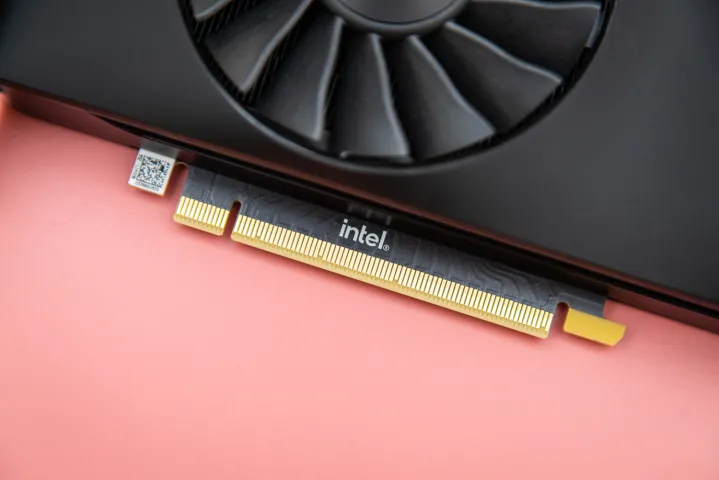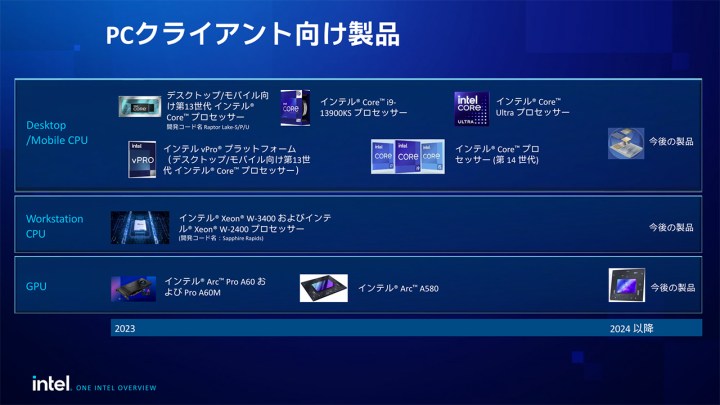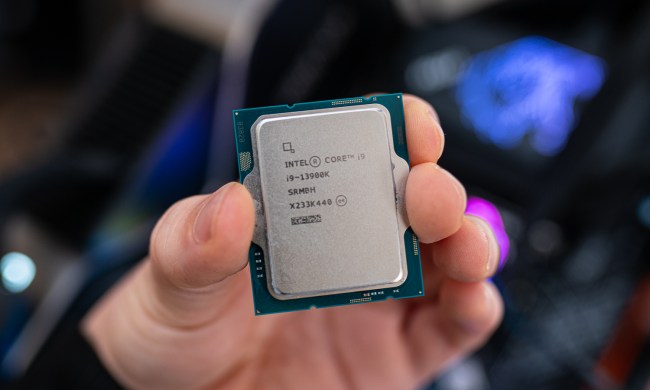
Intel hasn’t said much about its graphics cards lately. We saw the launch of the Arc A770 and A750 late last year, and the A580 just a few months ago, but after the departure of Raja Koduri from Intel’s graphics division earlier this year, the future of Intel Arc has been a bit patchy. It now appears Intel is still planning to deliver on its road map, though.
A slide shared with Japanese gaming outlet 4Gamer shows that Intel is planning to launch a next-gen GPU in 2024. This lines up with Intel’s initial road map, which promised that gamers would see next-gen Battlemage GPUs some time in early 2024.

As for when in 2024 we’ll see these GPUs, it’s not clear right now. RedGamingTech (via VideoCardz) shared a leaked internal slide from Intel showing the flagship Battlemage GPU arriving between April and June of 2024. The slide also shows an “early enabling” period in the first few months of the year, suggesting Intel may go with a gradual rollout of its next-gen GPUs.
We may even hear about the cards at CES 2024 in January. Intel has confirmed already that it’s hosting a keynote on January 9 titled “AI Everywhere.” Intel just launched its Core Ultra CPUs for laptops on December 14, so it’s not clear what new announcements the company is planning for CES. If Battlemage is indeed arriving in the first few months of 2024, we expect that it will receive a nod during the keynote.
Intel isn’t likely going to make big claims about Battlemage, however. Its first generation of Arc GPUs had a notorious release cycle, with several delays and rumors of cancellation. Even at launch, Arc GPUs showed several issues with their drivers. It seems the graphics division has been heads-down working on GPUs and drivers, as we’ve seen massive improvements in Arc performance since the release.
For close to a year, RedGamingTech has claimed that the flagship Battlemage card will offer performance that could rival Nvidia’s RTX 4080. That seems optimistic from what we’ve seen from first-gen Arc GPUs, but there’s still plenty to get excited about in Intel’s follow-up.
First is an AI-driven texture compression technique that Intel detailed during the recent Siggraph 2023. The paper Intel introduced shows both a compression tool that keeps VRAM limitations low in complex scenes, as well as an efficient path tracing algorithm that aims to make the complex rendering technique possible on lower-end GPUs.
Intel introduced another paper during Siggraph Asia 2023 showing a DLSS 3 rival that generates new frames during gameplay. Unlike similar frame-generation methods, Intel proposed frame extrapolation instead of frame interpolation. This predicts future frames rather than generating a frame from past ones, supposedly solving the latency issue we’ve seen with DLSS 3.
It shouldn’t be long before we hear about what Intel has in store for Battlemage. Intel may not shout about its graphics cards from the rooftops, but every indication we’ve seen so far suggests Intel hasn’t given up on Arc yet.




